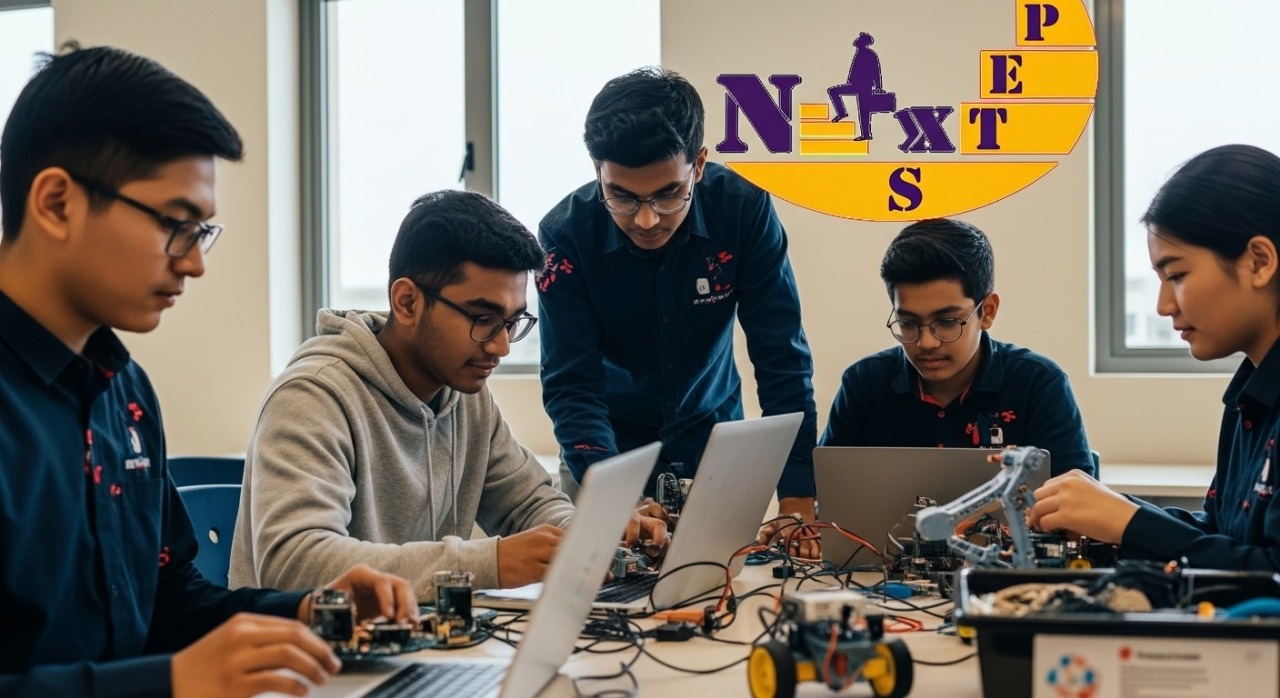Robotics Games Build Your Tech Future

Level Up Your Future: Why Robotics Games are More Than Just Play
When you hear the word “games,” what comes to mind? For most of us, it’s about having fun, exploring virtual worlds, and maybe a little friendly competition.
But what if a game could teach you how to build, code, and solve real problems? What if it could be the first step toward an amazing career in tech?
That’s exactly what robotics games are all about. They’re less about playtime and more about being a training ground for your future. Here in Nepal, where the tech scene is growing faster than ever, these games aren’t just a hobby—they’re how the next generation of engineers, programmers, and innovators get their start. You can also explore organizations like the Robotics Association of Nepal (RAN) to see local events.
So, What Exactly Are Robotics Games?
Let’s be clear: we’re not talking about video games where you just play as a robot. We’re talking about challenges where you design, build, and program your very own robot to compete.
Think of it as a mix of a sport, a science fair, and a puzzle, all rolled into one. It’s hands-on, creative, and incredibly rewarding.
These games usually come in two flavors:
- Physical Robotics Competitions: This is the classic image—arenas filled with cheering teams and custom-built robots going head-to-head. Competitions like VEX or the FIRST LEGO League challenge you and your team to build a physical robot from scratch. You’ll brainstorm a design, piece it together with motors and sensors, and write the code that brings it to life. It’s a complete engineering project, from start to finish. For local and global challenges, check out the Robotics for Good Youth Challenge Nepal.
- Virtual Robotics Simulations: These games happen right on your computer. Using powerful software, you can build a robot in a simulated world, add virtual sensors, and code its every move. Think of it like a flight simulator, but for robotics. It’s a fantastic way to learn the fundamentals without needing expensive hardware. If your design doesn’t work, you just hit “reset” and try a new idea in seconds. This is how many real-world robots, from self-driving cars to factory arms, are tested before they’re ever built.
Whether your robot is made of metal or pixels, the goal is always the same: solve a tough problem with smart design, clever code, and a good strategy.
It’s Not Just Fun—It’s a Skill-Building Machine
The real magic of robotics isn’t just watching your machine zoom across a field. It’s the huge range of skills you learn while making it happen—skills that tech companies are desperate to find.
You’ll Actually Use STEM (Science, Tech, Engineering, and Math)
Robotics takes all those abstract ideas from school and makes them real.
- Science: You’ll quickly run into physics. Why does your robot tip over when its arm extends? That’s its center of gravity. How do you give a small motor enough power to lift something heavy? That’s all about gear ratios. Suddenly, those textbook concepts click because you need them to win.
- Technology: You’ll get hands-on with electronics. You’ll learn how sensors work as the robot’s “eyes and ears” and how motors and servos act as its “muscles.”
- Engineering: The whole experience is one big engineering lesson. You’ll follow the same process professionals use: design, build, test, and repeat. You’ll learn how to find and fix flaws, making your robot better with each try.
- Math: Forget boring worksheets. You’ll use math to calculate the perfect angle for a robotic arm or to program your machine to follow a precise path. It becomes a tool you actually need.
Your Gateway to Coding and AI
A robot is just a pile of parts until you tell it what to do. That’s where programming comes in, and robotics makes learning to code exciting because you see your lines of code create real-world action.
You’ll often use languages like Python or C++, which are used everywhere in the tech industry. When you learn to program a robot to solve a maze, you’re also learning the core logic, loops, and functions you’d need to build an app or analyze data.
And this is where it gets really cool. Robotics is your first step into Artificial Intelligence (AI). When you program a robot to use its sensors to make a decision on its own—like choosing which way to turn when it sees an obstacle—you’re teaching it to think. That’s the core idea behind AI.
Building Skills for Working with People
Technical skills are only half the story. Building a robot is a team sport, and it teaches you skills that no textbook can.
- Teamwork: You can’t build a great robot alone. You learn how to communicate ideas, split up tasks, and work together toward a common goal.
- Problem-Solving: When things go wrong—and they always do!—you become a detective for your own machine. Is the arm failing because of a weak motor, a flaw in the design, or a bug in the code? You learn to analyze problems from every angle and find a solution under pressure.
- Creativity: There’s no single “right” way to build a robot. You’ll see other teams come up with wild, brilliant designs you never thought of, which pushes you to think outside the box and innovate.
From Hobby to a High-Tech Career in Nepal
The skills you build in robotics competitions are exactly what companies across Nepal’s tech industry are looking for. They need people who don’t just know theory but can actually build things, solve unexpected problems, and work well in a team.
A background in robotics can open doors to all sorts of careers:
- Automation Engineer: Building robotic systems for factories and warehouses.
- AI/Machine Learning Engineer: Creating the “brains” for smart technology.
- Software Developer (IoT): Writing code for smart, connected devices.
- MERN Stack Developer: The logical thinking and step-by-step problem-solving you learn in robotics are the exact same skills you need to build complex websites and apps.
- Data Scientist: Using data from sensors to make systems smarter and more efficient.
How We Can Help You Get Started
At NextStep InfoTech, we’re passionate about helping you build skills for the future, and robotics is a big part of that. We’ve created a learning path to guide you from your very first line of code to building amazing things.
Our “Code for Kids“ program is the perfect starting block, introducing young minds to programming logic in a way that’s fun, not frustrating.
For older students and adults, our Python Programming course gives you the #1 language for robotics and AI. Mastering it is the key that unlocks everything else.
And when you’re ready to go deeper, our course on AI & AI Tools shows you how to build truly intelligent systems, moving from simple commands to machine learning.
We focus on practical, hands-on training that gets you ready for a job. You won’t just sit through lectures; you’ll build projects and solve the kind of problems you’ll see in the real world.
Your First Steps on the Robotics Journey
Ready to give it a try? Here’s a simple way to start today:
- Learn the Language: Start by learning a language like Python. It’s beginner-friendly and incredibly powerful.
- Play in a Sandbox: Check out free online robotics simulators. You can experiment with coding and design without needing any physical parts.
- Get Your Hands Dirty: When you’re ready, grab a starter kit like an Arduino or Raspberry Pi. They’re affordable, and the online community is huge and very helpful.
- Find a Guide: The fastest way to learn is with a structured program. A good course gives you a clear roadmap, expert feedback, and a community to learn with.
Your Future is Waiting to be Built
Robotics games are so much more than a hobby. They are one of the best ways to learn the skills you need to succeed in today’s world. They teach you to be a creative problem-solver, a great teammate, and a true innovator.
So, are you ready to turn your interest in technology into a real, valuable skill? Don’t just play the game—learn how to build the players.
Explore our programs at NextStep InfoTech today! Chat with one of our career counselors, and let’s map out your journey into the exciting world of technology.



